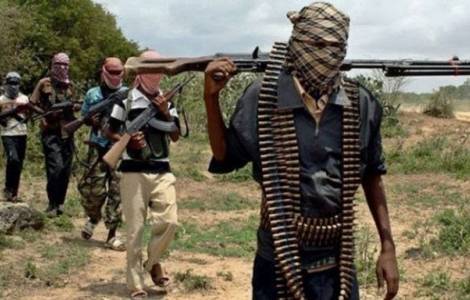
Abuja (Agenzia Fides) - "The kidnappings of priests and religious are increasing in Nigeria", confirms the auxiliary bishop of the Diocese of Minna in the Nigerian state of Niger, Luka Sylvester Gopep, in an interview with Fides on the security situation in his country.
Fides: Do you think that the phenomenon of kidnappings of priests and religious has increased in the last year? Is there a strategy targeting the clergy, or are the kidnappers just bandits looking for money?
Bishop Gopep: The kidnapping and in some cases killing of priests and religious by various criminal groups has made the situation in Nigeria precarious. The percentage has increased since last year. More than 20 cases of kidnapping and killing of priests were recorded in Nigeria in 2022. This is alarming and requires urgent action by federal and state governments.
These attacks on priests and religious were perpetrated by different groups and for different reasons. On the one hand, the attacks by Boko Haram groups are part of their agenda to impose Islam and Sharia on all communities in Nigeria. On the other hand, the attacks serve to expel Christians from the Church and force them to give up practicing their faith.
However, some kidnappings and killings of priests by various bandit groups in northern and southern Nigeria are largely for extortion purposes. We know that numerous bandit groups in the northern part of Nigeria are kidnapping Christians as well as Muslims and traditional African clergy. Extortion for ransom is the basis of most activities of these criminal groups.
Fides: The massacre in the church of Owo is attributed to the Islamic State of West Africa (ISWAP). Is this opinion shared in Nigeria, or are there other hypotheses as to who was responsible for the massacre?
Bishop Gopep: On Pentecost Sunday, June 5, 2022, worshipers at St. Francis Catholic Church in Owo, Ondo State were attacked by unknown gunmen, killing more than 40 people. The federal government announced that the massacre was carried out by the Islamic State in West Africa (ISWAP). It was also said that some people suspected of being involved in the attack had been arrested.
However, others, including Rotimi Akeredolu, the governor of Ondo State, took the opposite view that it was not ISWAP. Some believed it was the work of armed Fulani nomads, while others blamed the attack on local gangs targeting some people who were in church that fateful Sunday. So, in fact, there are different opinions as to who committed the massacre.
Fides : Do the recent attacks on federal facilities such as prisons and also on the federal capital Abuja indicate a general deterioration of the security situation in Nigeria?
Bishop Gopep: With each passing day, the security situation in Nigeria continues to deteriorate and criminal activity increases at an alarming rate.
The offices of the Independent Electoral Commission (INEC) are also currently under attack, particularly in eastern Nigeria. In northern Nigeria, attacks by various terrorist groups and bandits on communities and villages in the region are increasing. Abductions of individuals, families and groups of people constantly occur in all parts of Nigeria.
Unfortunately, this has led many people, regardless of religion, ethnicity, tribal affiliation and geographical location, to conclude that Nigeria's security is at risk, blaming the politicians and security chiefs for this situation.
We do not know whether such claims are true or false, and we do not support allegations against individuals or groups without supporting evidence and investigation. We are simply urging the federal and state governments to do more to protect our people and step up the protection of people and entities across the country as we approach the peak of the campaign and general elections in February 2023.
Fides: Isn't there a risk that the emergence of paramilitary security forces such as the Umueri Vigilante Group in Anambra state or the Amotekun militias in six southern states could create conditions for the destabilization of the Federation?
Bishop Gopep: The creation of parallel security forces in different regions, states and communities in Nigeria is an indicator that the state security agencies are overwhelmed by the scale of the security problems in Nigeria. The spread of insecurity and the manner in which the military, police and paramilitary organizations in Nigeria deal with this insecurity leave much to be desired. We appreciate their efforts and sacrifices so far, but Nigerians are demanding more effort because they are extremely vulnerable right now.
We believe that vigilantes, if well managed, can help reduce insecurity in Nigeria. We can cite the example of the "Civilian JTF" in north-eastern Nigeria. Members have contributed immensely to reducing the number of terrorist attacks in many communities in this region.
But if they are left to their own devices and take charge of law enforcement themselves, new challenges will arise. On the other hand, if the regional and state leaders who trained them and their leaders give them proper oversight, they will be able to help federal security agencies maintain security in different parts of the country. (L.M.) (Agenzia Fides, 7/1/2023)